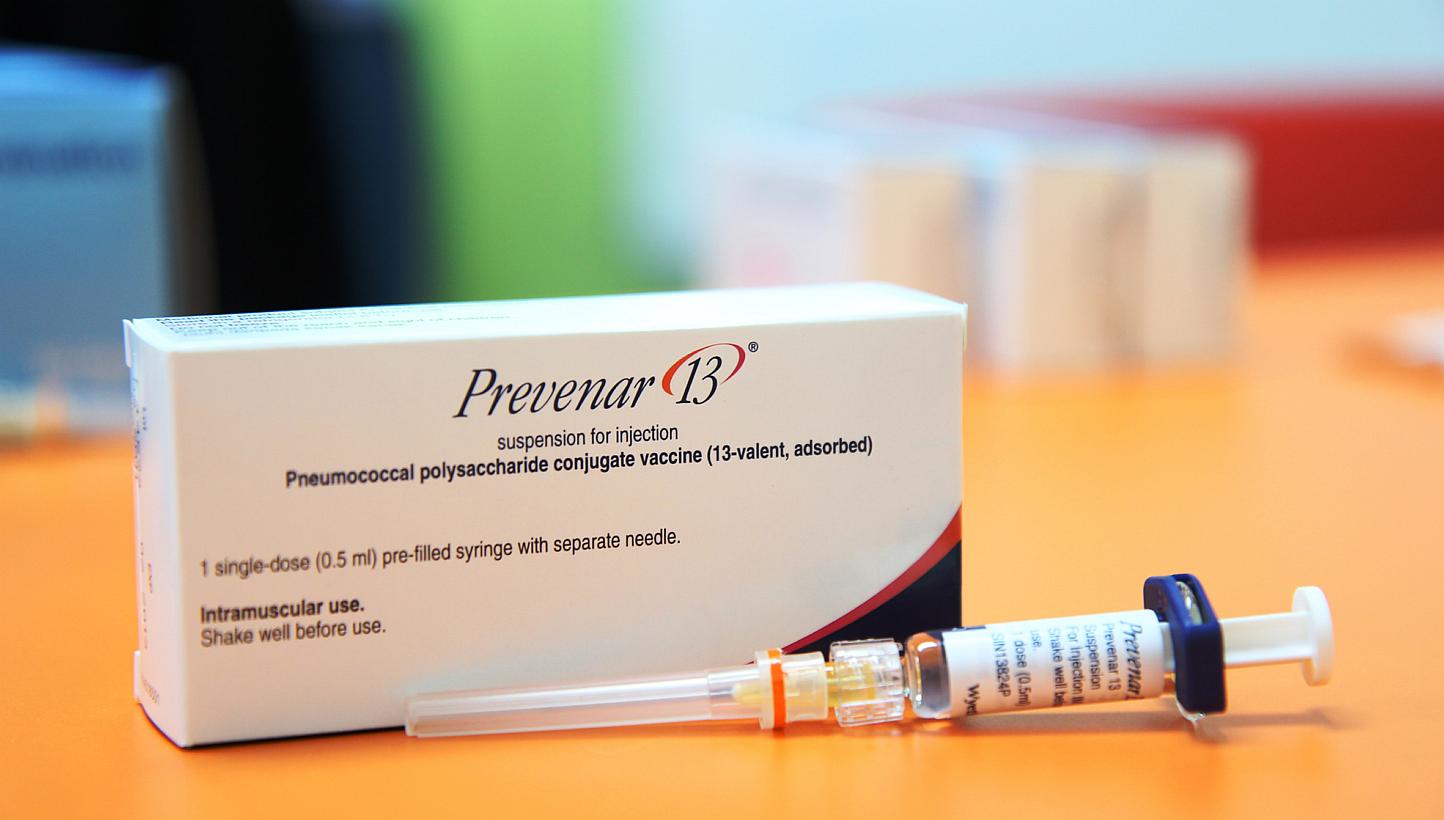Many young children not getting pneumococcal vaccine 'due to cost'
Doctors want pneumococcal vaccine to be made more affordable
Sign up now: Get ST's newsletters delivered to your inbox

Pneumococcal disease is the leading infectious cause of death in children worldwide. The Health Ministry recommends vaccinating children against Streptococcus pneumoniae bacteria, but some parents find the cost of about $500 prohibitive.
Follow topic:
Nearly four in 10 children aged two and below are not getting the full pneumococcal vaccine, and part of the reason is cost, according to doctors.
One dose of the vaccine costs around $150 at a polyclinic, and between $170 and $180 at most general practitioners (GPs). Three doses are recommended by the time a child turns one, bringing the overall cost to about $500.
Pneumococcal disease is the leading infectious cause of death in children worldwide. It is a bacterial infection which often starts with high fever but can lead to pneumonia, meningitis and other life-threatening ailments.
That is why the Health Ministry in 2009 placed the jab against Streptococcus pneumoniae bacteria on its recommended list of vaccinations for children, alongside those for diphtheria, polio and tetanus. Only immunisations for diphtheria and measles are compulsory by law.
Almost all of the other vaccines under the National Childhood Immunisation Schedule - such as those for tuberculosis - are free for citizens at polyclinics.
"It is a bit odd for some (vaccines) to be fully subsidised but this one to be not, especially since it is recommended," said communications executive Christopher Chong, 35, who has a three-year-old son.
When the Government allowed the use of Medisave for the jab in 2009, the number of children getting it shot up. That year, a fifth of children got a third "booster" dose of the vaccine.
Even then, there is a significant gap between it and heavily subsidised vaccines. For instance, Hepatitis B vaccination rates have hovered at around 95 per cent since 2003.
Doctors whom The Straits Times spoke to said more could be done to make the pneumococcal vaccine more affordable.
"It is plausible that the high price may put off some parents," said Dr Hsu Li Yang, an infectious diseases physician at Mount Elizabeth Novena Hospital.
GP Lee Kwok Keong, who sees many young parents in his Punggol clinic, said: "Vaccination rates have gone up since people have been able to use Medisave to pay, but the price is still a bit prohibitive."
The price of the vaccine was recently put in the spotlight by medical charity Medecins Sans Frontieres (Doctors Without Borders), which published a report last month on the rising cost of immunisation worldwide.
It highlighted how the pneumococcal vaccine market is a duopoly, with drug companies typically pricing their products according to how much a country can afford. For example, a dose of drug giant Pfizer's vaccine costs US$75 (S$101) in France, but US$65 in India. In the United States, the same jab would set you back by US$136. In Malaysia, the vaccine costs RM200 to RM300 (S$76 to S$114). In the Philippines, most pay between 3,000 and 5,000 pesos (S$91 and S$152) per dose.
A spokesman for Pfizer, which produces Prevenar 13, the most commonly used pneumococcal vaccine, said the pricing of Prevenar 13 varies by country, depending on a nation's economic standing, guidelines and other considerations.
Until another vaccine enters the market or the vaccine's patent expires, doctors say it is unlikely prices will go down.
Health Ministry figures show there were at least 166 cases of invasive pneumococcal disease in 2013. Twenty of the patients were under the age of 25.
That year, pneumonia was the second most common cause of death after cancer.
From 2004 to 2013, 16 deaths were associated with pneumococcal disease. Five of the patients were under six years old.
"That is why doctors fought so hard to put it into the National Childhood Immunisation Schedule," said Dr Lim Woan Huah of Kidslink Children's Clinic.
She believes that the relatively low number of children getting pneumococcal vaccinations can also be attributed to a lack of awareness among parents.
"A lot of people still think it is an optional vaccine," she said, adding that the cost of the vaccine should not put people off. "If you compare the cost of the vaccine to the cost of hospitalisation, it is really not worth it."
linettel@sph.com.sg

